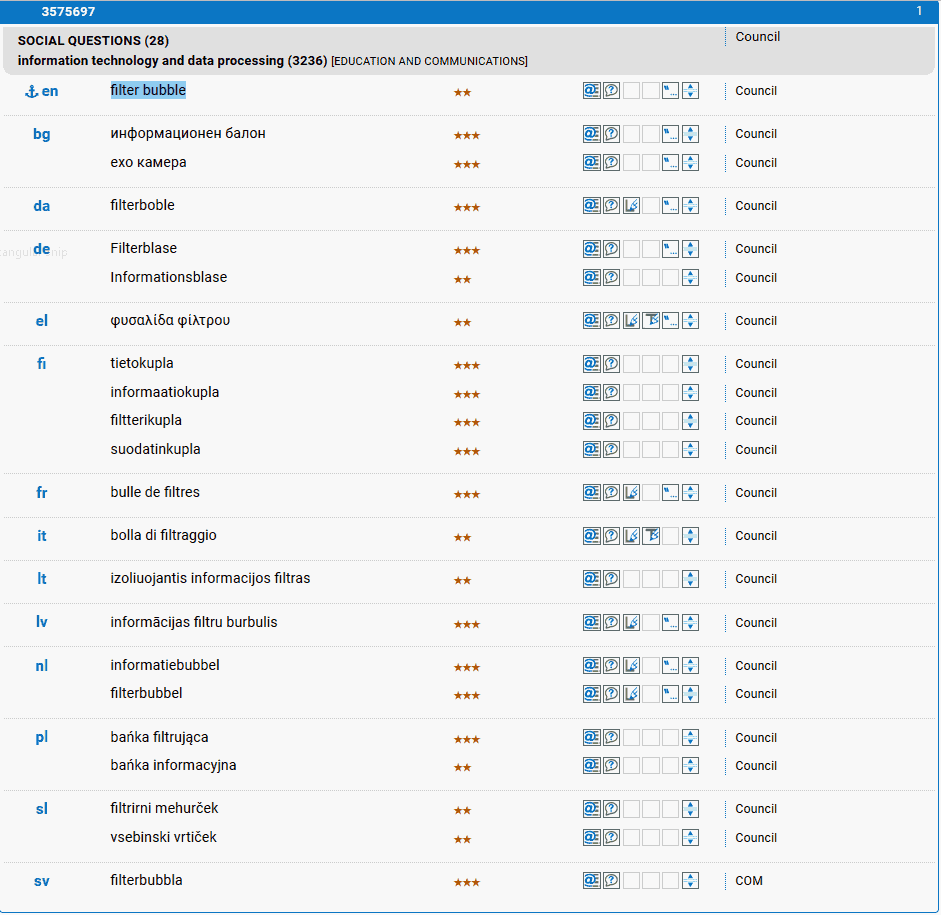
The line in the coffee shop is not moving? Without conscious thought we reach for our phones and check if there is anything new. We not only check our private messages and emails, but we also check the news to stay informed of what is happening around us and elsewhere in the world. We get sucked into our bubble…
The internet offers a broad range of outlets to gather information and most people in Europe consume the news online. Social media plays an especially important role as a news source. Algorithms feed on data about the user’s behaviour and determine the selection of news seen on social media accounts. This can lead to so called filter bubbles.
A new study called Polarisation and the news media in Europe which was requested by the European Parliamentary Research Service defines the term filter bubble as a “state that an individual would find themselves in if they relied heavily on services that use algorithmic selection to filter out news, ideas, and perspectives that differ from their own.”
In the last couple of years, filter bubbles have been cited as the driving force behind polarization, populism and disenchantment with democracy. However, this study found little support for the existence of news filter bubbles on social media in the respective literature and some studies even suggest that people have more access to news from different political perspectives.
Consequently, filter bubbles do not seem to be the main cause of polarization. This fact should not stop us from being aware of, tolerant and open toward other perspectives as long as the sources are reliable.
Waking up from your bubble, you realize you are next in line. Time to get your coffee.

Reference:
Brunner, K., Ebert, F., & Sabrina, E. (2017, May). Testen Sie Ihre Filterblase. Sueddeutsche Zeitung. Retrieved March, 2019, from https://www.sueddeutsche.de/digital/der-facebook-faktor-testen-sie-ihre-filterblase-1.3474022
Fletcher, R., & Jenkins, J. (2019). Polarisation and the news media in Europe. Retrieved March 13, 2019, from http://www.europarl.europa.eu/RegData/etudes/STUD/2019/634413/EPRS_STU(2019)634413_EN.pdf
IATE. (n.d.). Retrieved March, 2019, from https://iate.europa.eu/search/standard/result/1552551307230/1
Written by Annemarie Menger – Communication Trainee at the Terminology Coordination Unit of the European Parliament (Luxembourg) and a student of the Master’s Program in Learning and Communication in Multilingual and Multicultural Contexts at the University of Luxembourg. She holds a teacher’s degree in the form of the First German State Examination for Elementary Education, a BA in Cultural Basic Skills and an additional degree in Global Systems and Intercultural Competence from the University of Würzburg.
![]()
